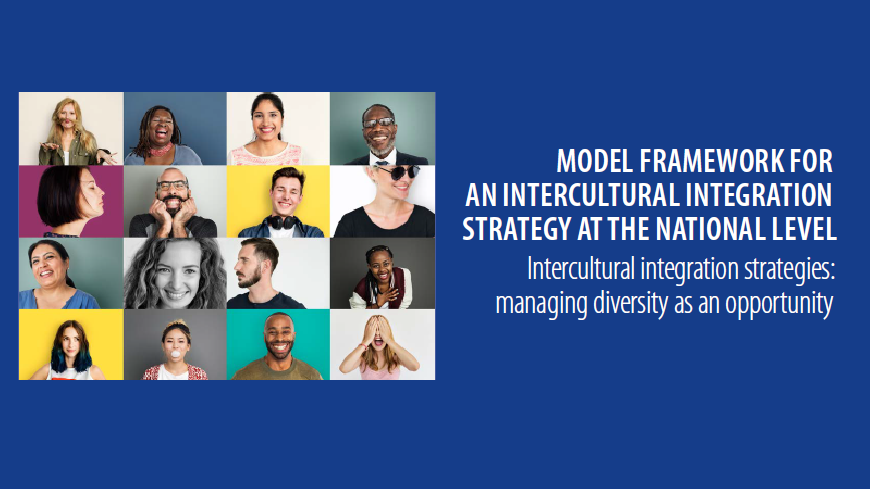Adopted by the Steering Committee on Anti-Discrimination, Diversity, and Inclusion (CDADI) in June 2021, the Model Framework for an intercultural integration strategy at the national level is the first international guidance providing a basis for national intercultural integration strategies grounded on human rights standards. The purpose of the Model Framework is to guide national policy practitioners in their efforts to design integration policies which help build inclusive and cohesive societies for everyone.
The document is a source of inspiration and ideas underpinned by a wealth of experience, evidence and good practices gathered across all levels of governance thanks to the multilevel composition of the CDADI drafting sub-Committee, the Working Group on Intercultural Integration, the first intergovernmental working group bringing together national and local authorities.
The Model framework is based on Council of Europe standards and insights from monitoring bodies, member states experience and practices, as well as the outcomes of the Intercultural Cities Policy Labs and good practices.
The Model Framework also shows how all policy areas can contribute to achieve successful integration, benefit from the diversity advantage, and promote more inclusive societies, especially if these are coordinated through a multilevel approach, involving the cooperation across all levels of governments. Finally, a detailed matrix puts forwards a large number of examples how the principles of intercultural integration can be translated into policies.
The Model Framework can be further used by member states to implement Recommendation CM/Rec(2022)10 on multilevel governance and policies for intercultural integration.
The document has been translated into Polish, Romanian, and Slovakian languages as a priority, with the view to support countries engaged into hosting people fleeing Ukraine.




